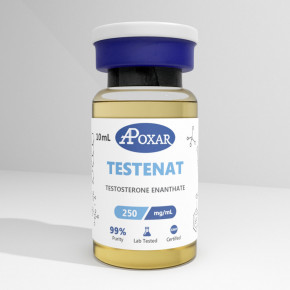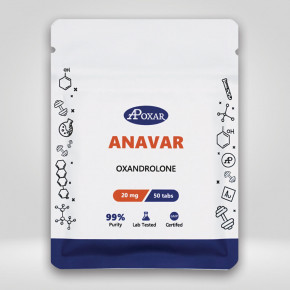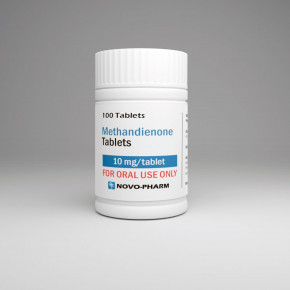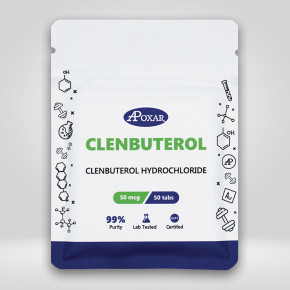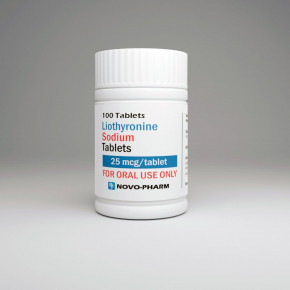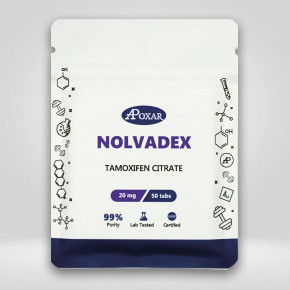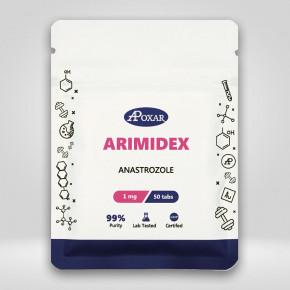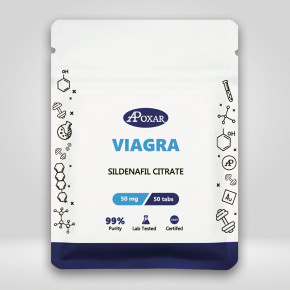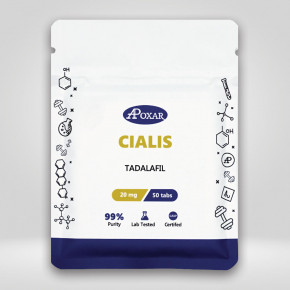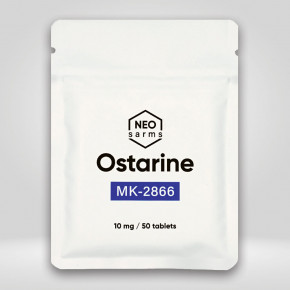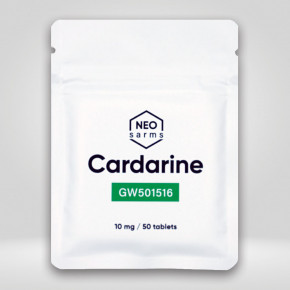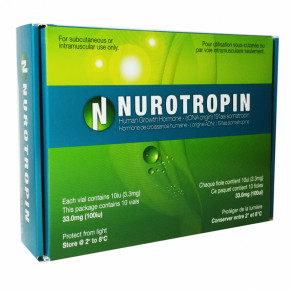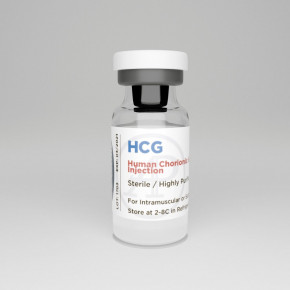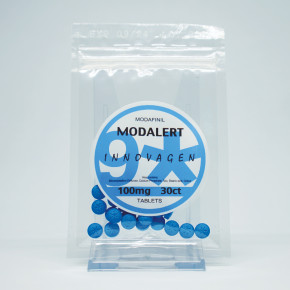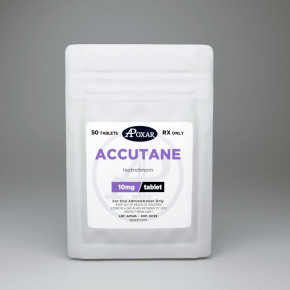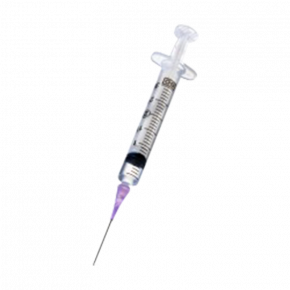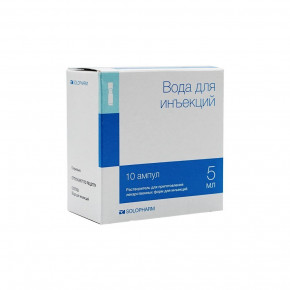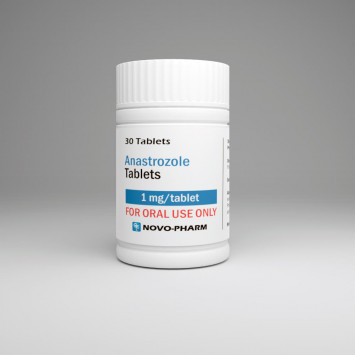 Free delivery for orders over $400 | Canada Wide Shipping
Free delivery for orders over $400 | Canada Wide ShippingArimidex - Anastrozole
Arimidex (Anastrozole) is one of the most reliable antiestrogens on the market today and is used during steroid cycle to control normal estrogen rate and prevent gynecomastia symptoms. Use 0.5-1mg when needed.
Arimidex Description
Arimidex (Anastrozole) is an anti-estrogenic drug developed for the treatment of advanced breast cancer in women. Specifically, this agent is the first in a newer class of third-generation selective oral aromatase inhibitors.1 It acts by blocking the enzyme aromatase, subsequently blocking the production of estrogen in the body. Since many forms of breast cancer cells are stimulated by estrogen, reducing levels of this hormone in the body may retard the progression of the disease. This is also the fundamental use of tamoxifen citrate (Nolvadex®), except Nolvadex blocks the action of estrogen at the receptor, not its actual endogenous production. The effects of anastrozole can be very substantial, with a daily dose of 1 mg (commonly 1 tablet) capable of producing estrogen suppression greater than 80% in treated patients. With the powerful effect, this drug has on hormone levels, it is usually only prescribed to post-menopausal women. Side effects like hot flashes and hair thinning can present themselves during therapy and would be much more severe in pre-menopausal patients. For the steroid-using male athlete, anastrozole is applied to minimize the side effects associated with elevated estrogen levels secondary to anabolic/androgenic steroid use. In comparison with traditional methods such as Nolvadex and Proviron, anastrozole is significantly more effective at controlling estrogen.
History
Arimidex was developed by Zeneca Pharmaceuticals and approved for use in the United States at the end of 1995. The drug was developed as a new adjunct treatment for operable breast cancer in postmenopausal female patients, an area of medicine that had a long history of tamoxifen use. Substantial data was needed to shift prescribing trends away from such an established medication treatment. Shortly after its release, anastrozole was investigated as part of an extremely large multicenter double-blind trial based out of Rome (ATAC). The study evaluated the use of anastrozole and tamoxifen, alone or in combination, in 9,366 postmenopausal women following breast cancer surgery. The results favored anastrozole over tamoxifen at promoting disease regression and improving overall survival rates. Upon publication of this trial in 2002, Arimidex emerged as a new contender for the adjunctive treatment of postmenopausal breast cancer. Around this same time the drug was also gained popularity with male bodybuilders and athletes who began taking notice of the strong estrogen suppression caused by anastrozole, both in the anecdotal reports of others and in clinical trials.
How Supplied
Arimidex is most commonly supplied in tablets of 1mg.
Structural Characteristics
Anastrozole is classified as a selective non-steroidal aromatase inhibitor. It has the chemical designation 1,3- benzenediacetonitrile,a,a,a’,a’-tetramethyl-5-(1H-1,2,4- triazol-1-ylmethyl).
Side Effects
Common side effects associated with the use of an aromatase inhibitor include hot flashes, joint pain, weakness, fatigue, mood changes, depression, high blood pressure, swelling of the arms/legs, and headache. Aromatase inhibitors may also decrease bone mineral density, which may lead to osteoporosis and an increase in fractures in susceptible patients. Some individuals may also respond to the medication with gastrointestinal side effects including nausea and vomiting. Aromatase inhibitors can harm the development of an unborn fetus, and should never be taken or handled during pregnancy. When taken by men (as off-label use) to reduce estrogenicity during prolonged periods of steroid treatment, aromatase inhibitors may increase cardiovascular disease (CVD) risk by retarding some beneficial properties of estrogen on cholesterol values. Studies have demonstrated that when an aromatizable steroid such as testosterone enanthate is taken in conjunction with an aromatase inhibitor, suppression of HDL (good) cholesterol levels become significantly more pronounced. Since the estrogen receptor agonist/antagonist Nolvadex® generally does not display the same anti-estrogenic (negative) effect on cholesterol values, it is usually favored over aromatase inhibitors for estrogen maintenance by male bodybuilders and athletes concerned with cardiovascular health.
Administration
Arimidex is FDA approved for the adjunctive treatment of postmenopausal women with hormone receptor-positive early breast cancer, first-line treatment of postmenopausal women with hormone receptor-positive or receptor unknown locally advanced metastatic breast cancer, and treatment of advanced breast cancer in postmenopausal women with disease progression following tamoxifen therapy. The dosage prescribed in all instances is 1mg per day until disease progression has halted. When used to mitigate the estrogenic side effects of anabolic/androgenic steroid use, male athletes and bodybuilders will commonly take .5 mg to 1 mg of anastrozole per day. In some instances, a half of a tablet (.5 mg) taken every other day is sufficient to mitigate the buildup of estrogen. When used with readily aromatizing androgens such as methandrostenolone or testosterone, gynecomastia and water retention are often effectively blocked. Additionally, the use of anastrozole may decrease fat mass, which can also be tied to estrogen levels.1,2 The result can be a harder and much more defined appearance to the muscles and physique, which makes this agent of interest for dieting/cutting purposes as well.
It is of note that food does not appear to affect the absorption of anastrozole, so the drug may be taken with or between meals.
Availability
Arimidex is widely available in the U.S. and many other nations as a prescription drug product. It is also found readily on the black market.
References:
- Preclinical pharmacology of “Arimidex” (anastrozole; ZD1033)–a potent, selective aromatase inhibitor. J Steroid Biochem Mol Biol 1996 Jul;58(4):439- 45
- Anastrozole alone or in combimation with tamoxifen versus tamoxifen alone for adjunctive treatment of postmenopausal women with early breast cancer. Frist results of the ATAC randomized trial. Lancet 2002; 359:2131-39

